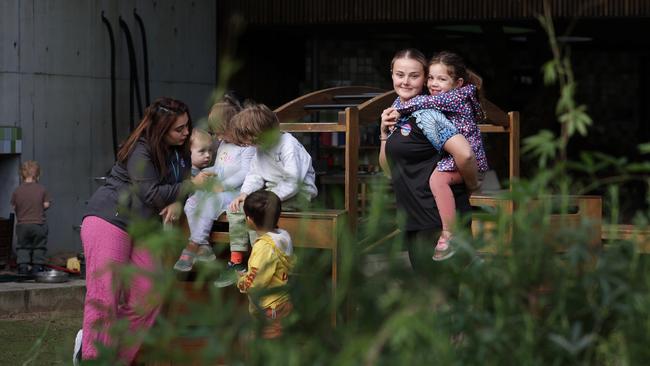Federal budget’s jobless warning if productivity fails to rebound
But Treasury predicts wages growth will outpace inflation over the next four years, delivering real pay rises for workers.

Failure to deliver a predicted rebound in productivity could drive up the jobless rate, Treasury has warned as it predicts wages growth will outpace inflation over the next four years, delivering real pay rises for workers.
According to the budget papers, productivity has grown for two consecutive quarters and was expected to continue to pick up as economic conditions improved. Noting there were substantial risks to the domestic outlook, Treasury says inflation could prove more persistent than forecast, with “possible implications for policy settings and growth”.
“If productivity does not pick up as expected, price pressures may be more persistent, with potential implications for unemployment and the real economy,” it says. “There is also significant uncertainty about how quickly aggregate household consumption will respond to the expected recovery in real disposable incomes.”
Nominal wage growth has picked up and is growing at its fastest rate in nearly 15 years.
Annual wages growth will fall from 4 per cent to 3.25 per cent over the next two financial years before rising to 3.5 per cent in the subsequent years of the forward estimates However, lower forecast inflation will deliver real wages growth of 0.5 per cent each year over the forward estimates.
The budget papers suggest the government is not anticipating funding pay rises for aged-care and early childhood workers until at least mid-2025.
The government has committed to funding a second tranche of aged-care pay rises of between 2 and 13.5 per cent for 250,000 direct carers.

But it is seeking to delay them by 18 months and phase them in as two increases in 2025 and 2026. The Fair Work Commission is also considering an ACTU claim for a 9 per cent minimum wage increase for workers in female-dominated industries as part of the annual wage review.
The cost to the government will depend on the commission’s ruling, including the timing and quantum of the gender equity based rises.
Unions and employers also want the government to fund pay rises flowing from a yet to be finalised multi-employer agreement across the early childhood sector.
While the pay rises will cost billions of dollars, Treasury officials said the funding would be drawn from a contingency reserve which has only $167m set aside for this financial year but $14.6bn in 2025-26 and $45bn over the subsequent two financial years.
“This government is ensuring Australians can earn more and keep more of what they earn – in the care economy and in every industry,” Treasurer Jim Chalmers said in his speech.
“We will ensure those who look after our kids as they learn, and our parents as they age, have the secure, well-paid jobs they deserve.
“We will fund a further increase in award wages for our aged-care workers, building on the $11.3bn we funded last year.
“And we have provisioned for a wage increase for childcare workers as well. This will help recruit and retain more early childhood educators, giving more Australian children the best start we can.”
The government has committed an extra $27.5m for the Fair Work Ombudsman to help it recover underpayments by large corporations, and an additional $20m for the FWO Employer Advisory Service so small businesses can get the help they need to meet workplace obligations.
An additional $500,000 will be allocated to the FWO for the implementation of the newly established right of workers to disconnect from their employers after-hours.
The government will also improve the operation of the Fair Entitlements Guarantee Recovery Program to help recover unpaid superannuation in cases of insolvency.







To join the conversation, please log in. Don't have an account? Register
Join the conversation, you are commenting as Logout